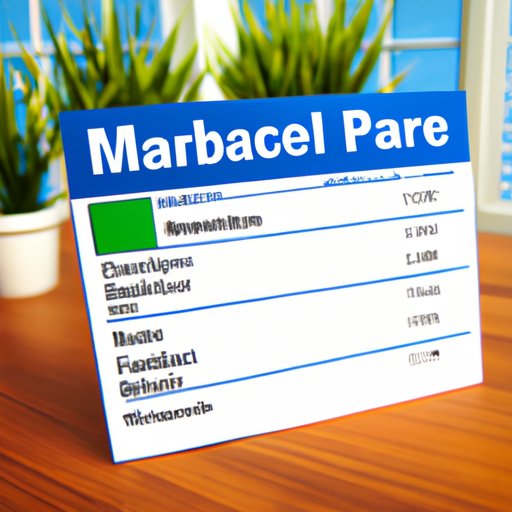Exploring the Benefits of Medicare Part B: Do You Need It?
Medicare is a federal health insurance program that provides coverage for seniors and people with disabilities. One of the components of this program is Medicare Part B, which helps cover medical expenses such as doctor’s visits, preventive care, and some medical equipment. But do you need Medicare Part B? Read on to learn more about what it covers, when it’s necessary, and how to decide if it’s the right choice for you.

Overview of Medicare Part B
Medicare Part B is an optional part of the Medicare program. It helps cover some medical services and supplies that are not covered by Medicare Part A, which is the part of Medicare that covers hospital stays and long-term care. Part B is usually purchased in addition to Part A, but it’s not required.
What Does Medicare Part B Cover?
Part B helps cover services such as doctor’s visits, lab tests, preventive care, durable medical equipment, and certain prescription drugs. It also covers mental health and substance abuse treatment, ambulance services, and home health services. Part B does not cover long-term care or vision or dental services.
When Is Enrolling in Medicare Part B Necessary?
If you have other health insurance, such as employer-sponsored insurance, you may not need to sign up for Part B. However, if you don’t have other coverage and want to take advantage of the benefits of Part B, you should enroll during your initial enrollment period. This period begins three months before you turn 65 and ends three months after your 65th birthday. If you miss this window, you may be able to sign up during the general enrollment period, which runs from January 1 to March 31 each year.

A Look at the Pros and Cons of Medicare Part B
Like any health insurance plan, Medicare Part B has both advantages and disadvantages. Here’s a closer look at both sides of the equation.
Advantages of Medicare Part B
One of the biggest benefits of Part B is that it helps cover medical services and supplies that would otherwise be out-of-pocket expenses. This includes doctor’s visits, lab tests, preventive care, and certain prescription drugs. Additionally, Part B can help you save money on long-term care services, such as home health care and skilled nursing facility care.
Disadvantages of Medicare Part B
One of the main drawbacks of Part B is that it doesn’t cover everything. For example, it doesn’t cover vision or dental services, long-term care, or most prescription drugs. Additionally, Part B comes with a monthly premium, which can increase over time due to inflation.

Understanding the Cost of Medicare Part B Coverage
In addition to your Part A premium, you’ll need to pay a monthly premium for Part B coverage. This premium depends on your income level, but for most people it’s $148.50 per month in 2021. In addition to the premium, you’ll also be responsible for paying a deductible and coinsurance for certain services. The Part B deductible for 2021 is $203.
How to Decide If Medicare Part B Is Right for You
Deciding whether or not to enroll in Medicare Part B is an important decision. To make the right choice, it’s important to consider both your health needs and your financial situation.
Consider Your Health Needs
First, think about your current health needs. Are you in good health, or do you anticipate needing frequent doctor’s visits or medical tests? If so, Part B could be a good choice, as it will help cover some of these costs. On the other hand, if you’re in good health and don’t anticipate needing medical services or supplies, you may be able to get by without Part B.
Assess Your Financial Situation
Next, consider your financial situation. How much can you afford to spend on health insurance? If you have limited funds, you may want to opt out of Part B in order to save money. However, if you can afford the premium and deductible, Part B may be worth the cost.
What Are the Eligibility Requirements for Medicare Part B?
To be eligible for Medicare Part B, you must meet certain criteria.
Age
You must be 65 or older and a U.S. citizen or permanent legal resident to qualify.
Other Qualifications
You must also meet certain other qualifications. For example, you must have been employed and paid Social Security taxes for at least 10 years or have been married to someone who was employed and paid Social Security taxes for at least 10 years. Additionally, you must be enrolled in Medicare Part A in order to qualify for Part B.
Conclusion
Medicare Part B can be a valuable source of coverage for many seniors and people with disabilities. However, it’s important to consider both your health needs and your financial situation when deciding whether or not to enroll. If you meet the eligibility requirements and can afford the premiums and deductibles, Part B may be a good choice for you.
(Note: Is this article not meeting your expectations? Do you have knowledge or insights to share? Unlock new opportunities and expand your reach by joining our authors team. Click Registration to join us and share your expertise with our readers.)
